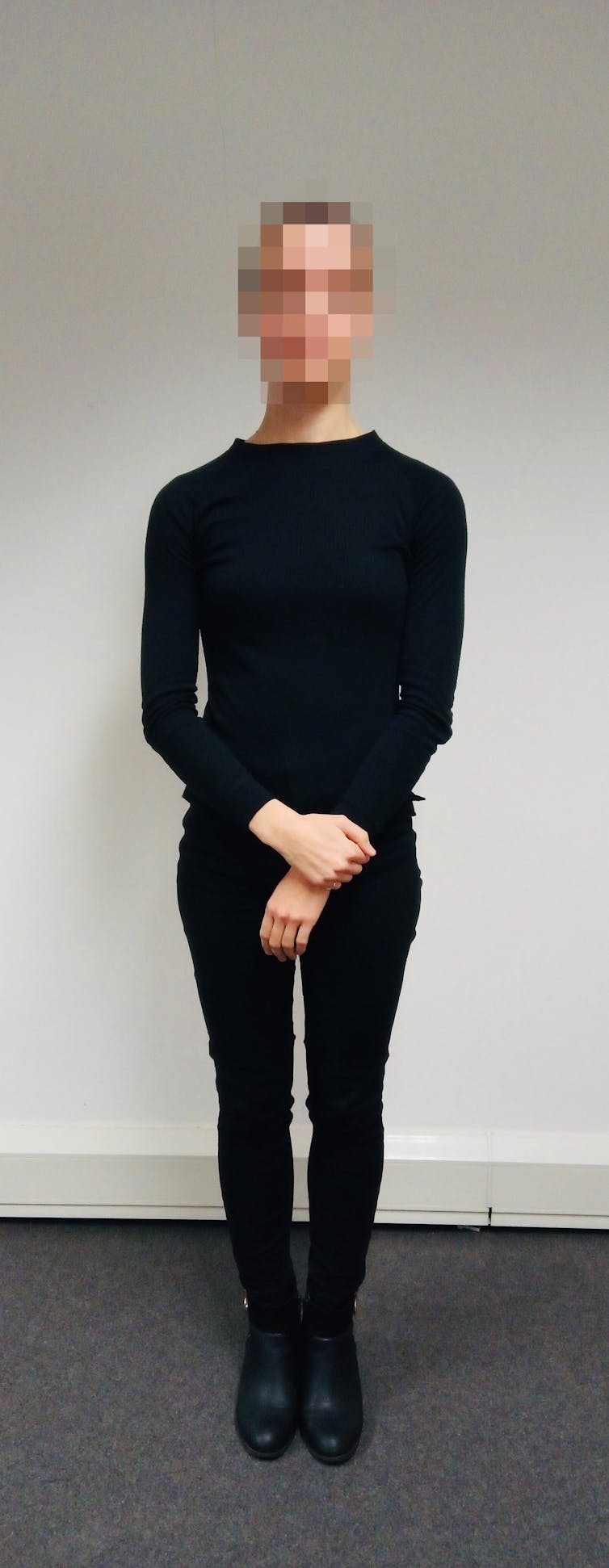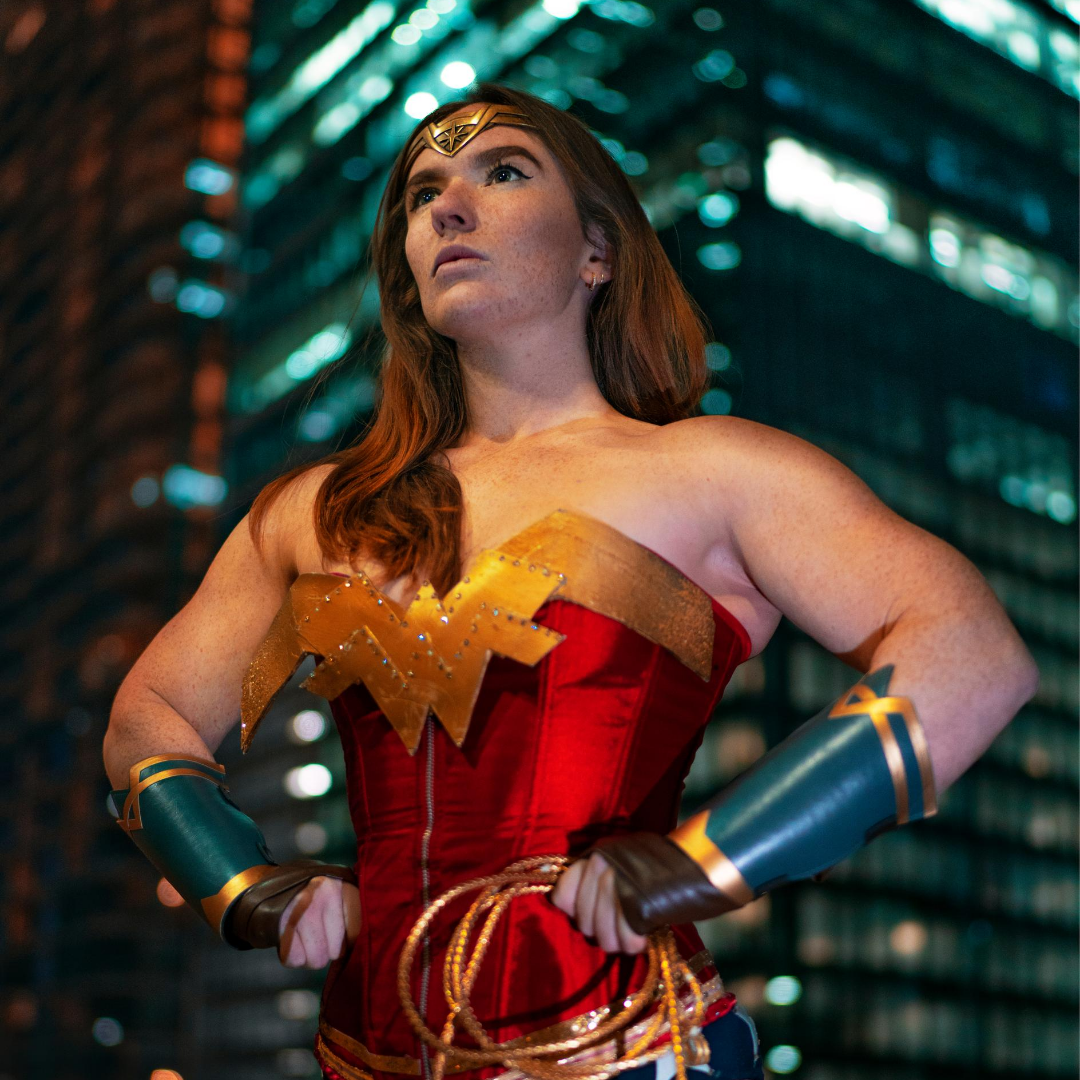Posture: How To Feel More Powerful and Confident
Holding wide, expansive postures – known as power poses – were once thought to boost confidence by producing hormonal changes and making us feel psychologically more powerful. Attempts to replicate the hormonal findings have proven difficult, though the psychological effect has gone largely unchallenged.
But our latest study shows that even the psychological effects of power posing are very small. What might be more important for boosting confidence is to avoid a posture that is small and contractive, such as slouching your shoulders or crossing your arms.
For our study, we wanted to find out whether power poses would increase feelings of power as well as reduce feelings of vulnerability and paranoia. Paranoia builds on negative beliefs about the self, such as feeling powerless and inferior to others. So if power posing can help people feel more powerful, it might also reduce paranoia.
One hundred people reporting high levels of paranoia took part in the study. Participants either held powerful poses or neutral poses for two minutes before entering social situations in virtual reality.
We then asked them to complete a questionnaire that assessed their feelings of power and any paranoid thoughts they were having. The results showed no differences in feelings of power or paranoia between those who held powerful poses versus those who held neutral poses. These findings suggest that power posing is of little benefit.
Comparing previous studies
What could explain the fact that we saw no psychological effect of power posing, in contradiction to earlier findings? One possibility we considered was that power posing simply doesn’t work for people who feel paranoid. For example, it could be that when we’re feeling paranoid, an expansive posture makes us feel exposed and vulnerable, rather than powerful.
To test this possibility, we repeated the study on people who reported no current paranoid thoughts. This time we did see a statistically significant increase in feelings of power in those who power-posed compared to those who posed neutrally, although the difference was very small.
Yet when we compared the data from participants with and without paranoia, we found that the difference in feelings of power was not linked to the presence or absence of paranoid thoughts.
A more likely explanation for the difference between our findings and past research is that the findings of previous studies have been incorrectly interpreted.
In past research, power posing has always been compared with contractive posing, not neutral posing. The previously reported difference in feelings of power could simply be the result of contractive poses decreasing these feelings, rather than power posing increasing them. In other words, holding wide and expansive postures may not boost our feelings of power, but holding small and contractive postures may reduce them.

The results of our study suggest this to be the case. The small difference in reported feelings of power did not come from a significant increase when power posing, but from a small decrease in the group who posed neutrally. Although our neutral pose was designed to have no impact on feelings of power, a completely neutral posture will look different for different people.
For the neutral pose we chose, people were asked to stand with their feet together, hands resting in front of their body, with one hand holding their other wrist. For some participants holding this pose, having their hands in front of their body may have led to a slightly slouched and contractive posture – and slightly decreased feelings of power as a result.
The key to ensuring our body posture doesn’t let us down during challenging situations may lie not in making ourselves as expansive as possible, but just in making sure we don’t shrink and contract our bodies.![]()
Poppy Brown, Doctoral Researcher in Psychiatry, University of Oxford
This article is republished from The Conversation under a Creative Commons license. Read the original article.
Recent Articles
-
Psychology Book Marketing
Apr 29, 25 04:39 AM
Psychology book marketing. Ignite your book's visibility by leveraging the massive reach of the All About Psychology website and social media channels. -
Promoted Psychology Books | All-About-Psychology.com Showcase
Apr 29, 25 04:27 AM
Discover standout titles featured through expert psychology book promotion. See what authors are sharing—and how their work is reaching new readers. -
All About Psychology
Apr 28, 25 05:51 AM
A psychology website designed to help anybody looking for detailed information and resources.






New! Comments
Have your say about what you just read! Leave me a comment in the box below.